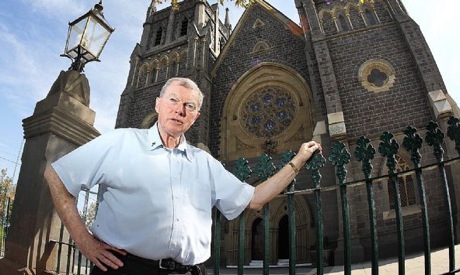A senior Australian parish priest has told the Victoria inquiry into clergy sex abuse that the Catholic Church’s procedures for dealing with abuse have failed and should be closed down.
“Time is up, the Church has had more than a fair chance. The Melbourne Response and Towards Healing have lost all credibility and are beyond repair,” said Father Kevin Dillon.
He said the Church response to abuse had been heartless, adversarial, and showed “a culture of denial” about the impact on victims.
Father Dillon, parish priest of St Mary of the Angels parish, Geelong, was appearing at a sitting of the inquiry in Geelong. His testimony drew a standing ovation from an audience of about 100 people.
A campaigner within the Church on behalf of victims, Father Dillon said he had consistent contact with 30 victims.
“Sadly but importantly, I have yet to hear one victim speak positively of their experience with either Church process” (Melbourne or national), he said.
Father Dillon said the Church should be forced to set up a pastoral fund for victims, administered by an independent committee. A compulsory contribution from each parish of $20 to $50 a week for two years would raise up to $400,000.
“We can run raffles. We Catholics are pretty good at raising money,” he said. Asked by an inquiry member whether the Church would pay, Father Dillon replied it should not be given a choice.
He said he suggested the idea to several diocesan leaders but was ignored.
Father Dillon criticised Church leadership for “not once” contacting former victims to see how they were getting on, and advocated a support group similar to Alcoholics Anonymous.
He criticised a speech by Cardinal George Pell of Sydney in 2011, in which the cardinal said the Church realised in 1996 it would have to act or “the scandals will bleed us dry”.
Father Dillon asked, “Does that mean it really is all about the money?”
He said the Church had focused on denial and protection of material assets rather than protection of human assets.
Sources:
Image: Geelong Advertiser
